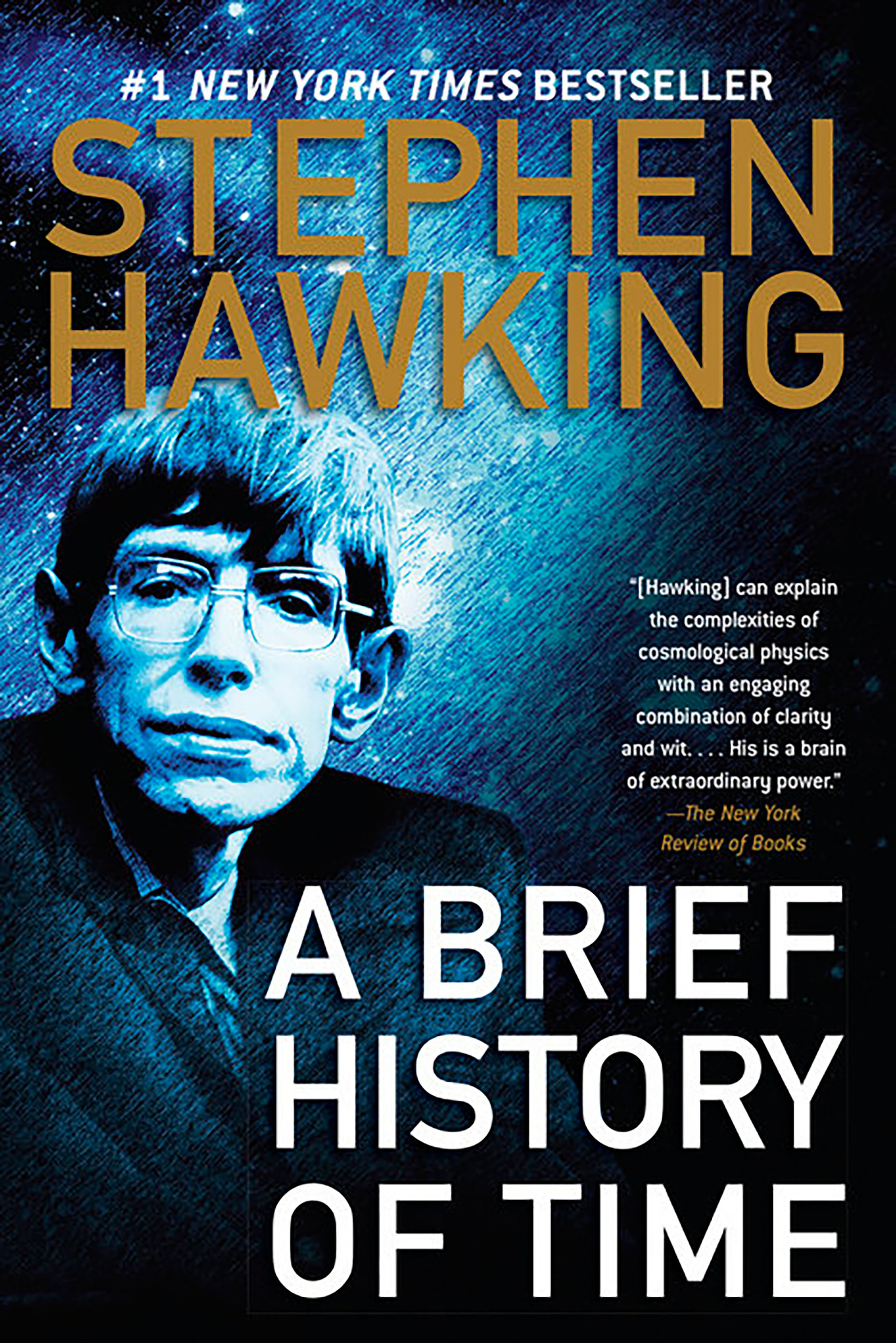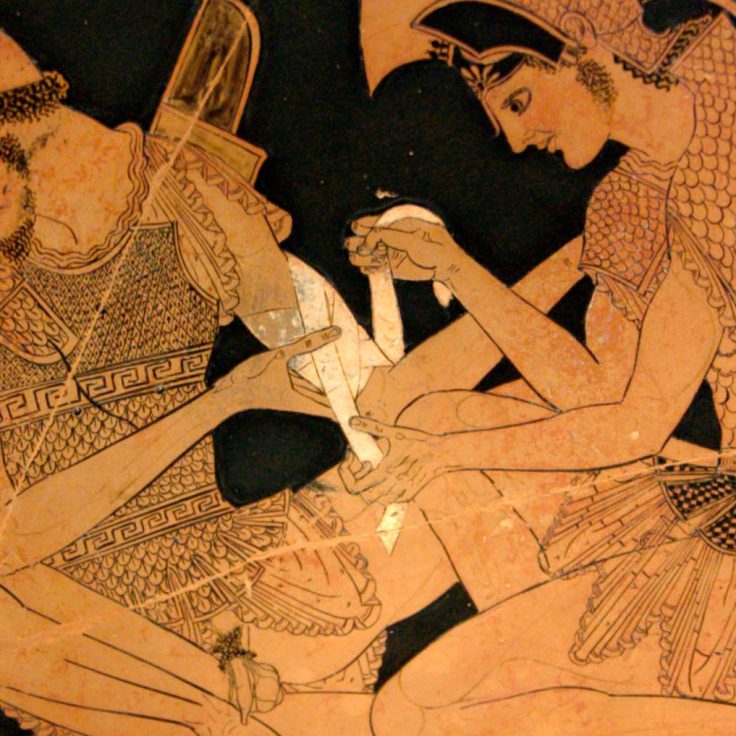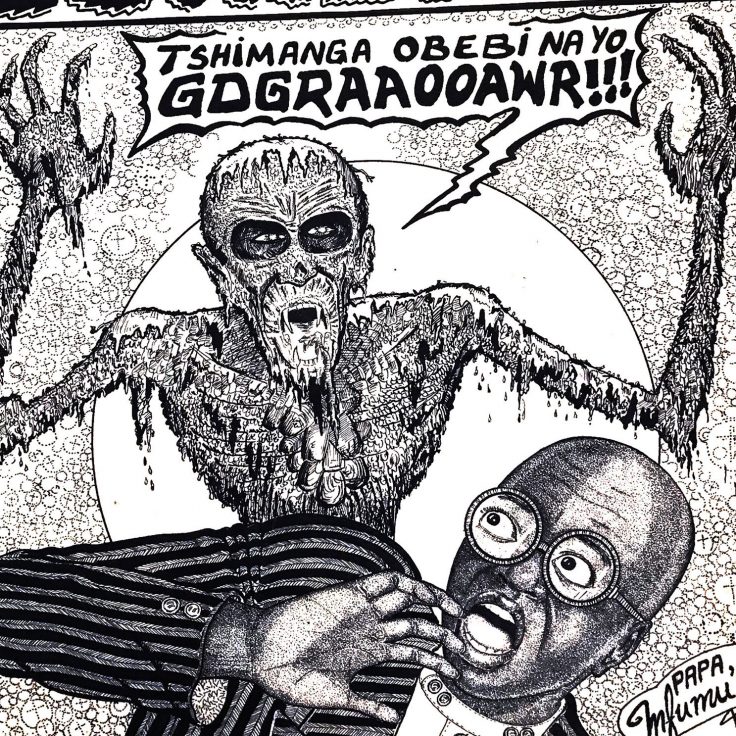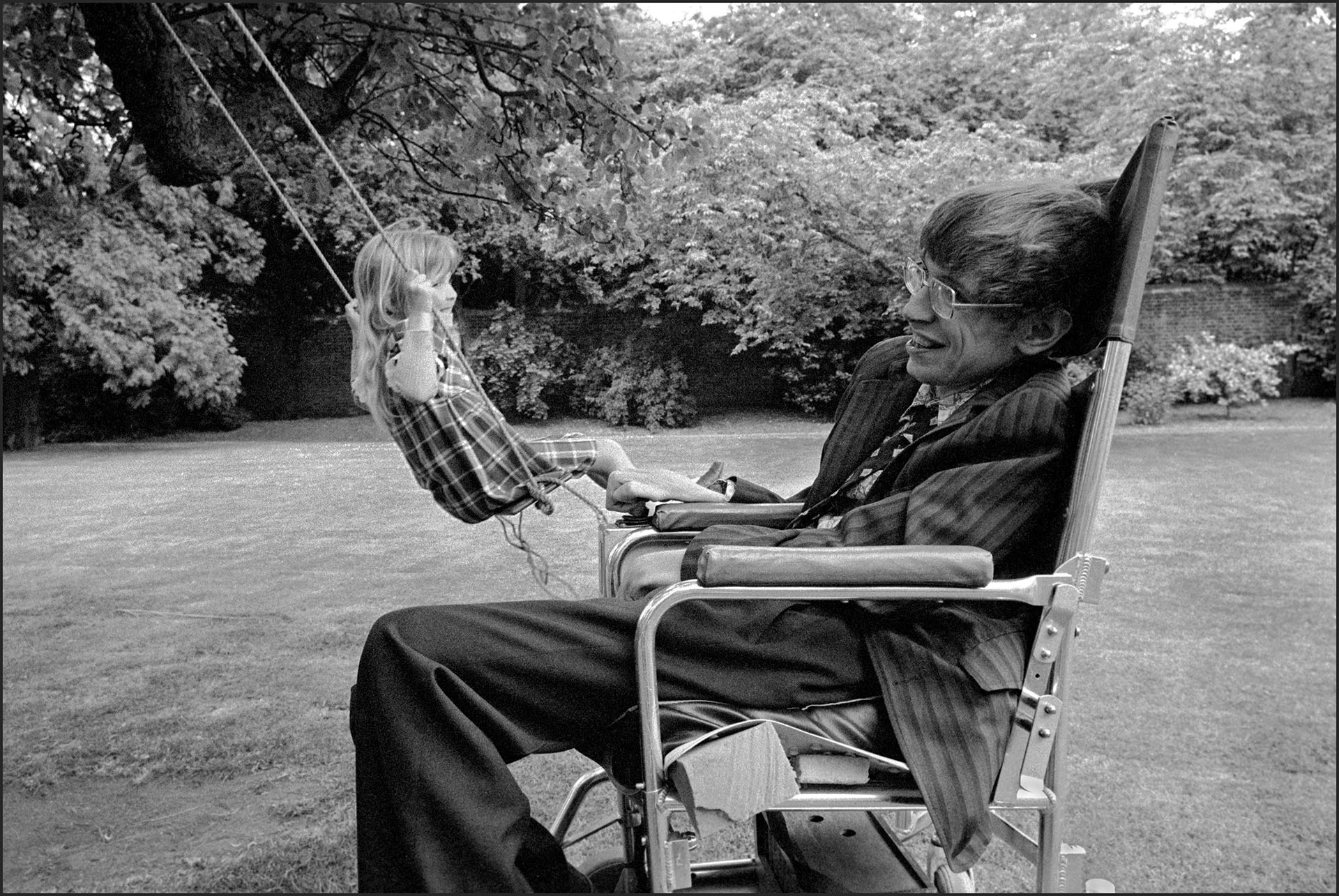
England. Cambridge. Professor Stephen Hawking in his garden with his daughter on a swing. 1977 Ian Berry/Magnum Photos
His Brief History in Time
The world knew Stephen Hawking as a genius whose imagination and determination transcended his physical abilities. UF Professor of Physics Bernard Whiting knew him as a friend.
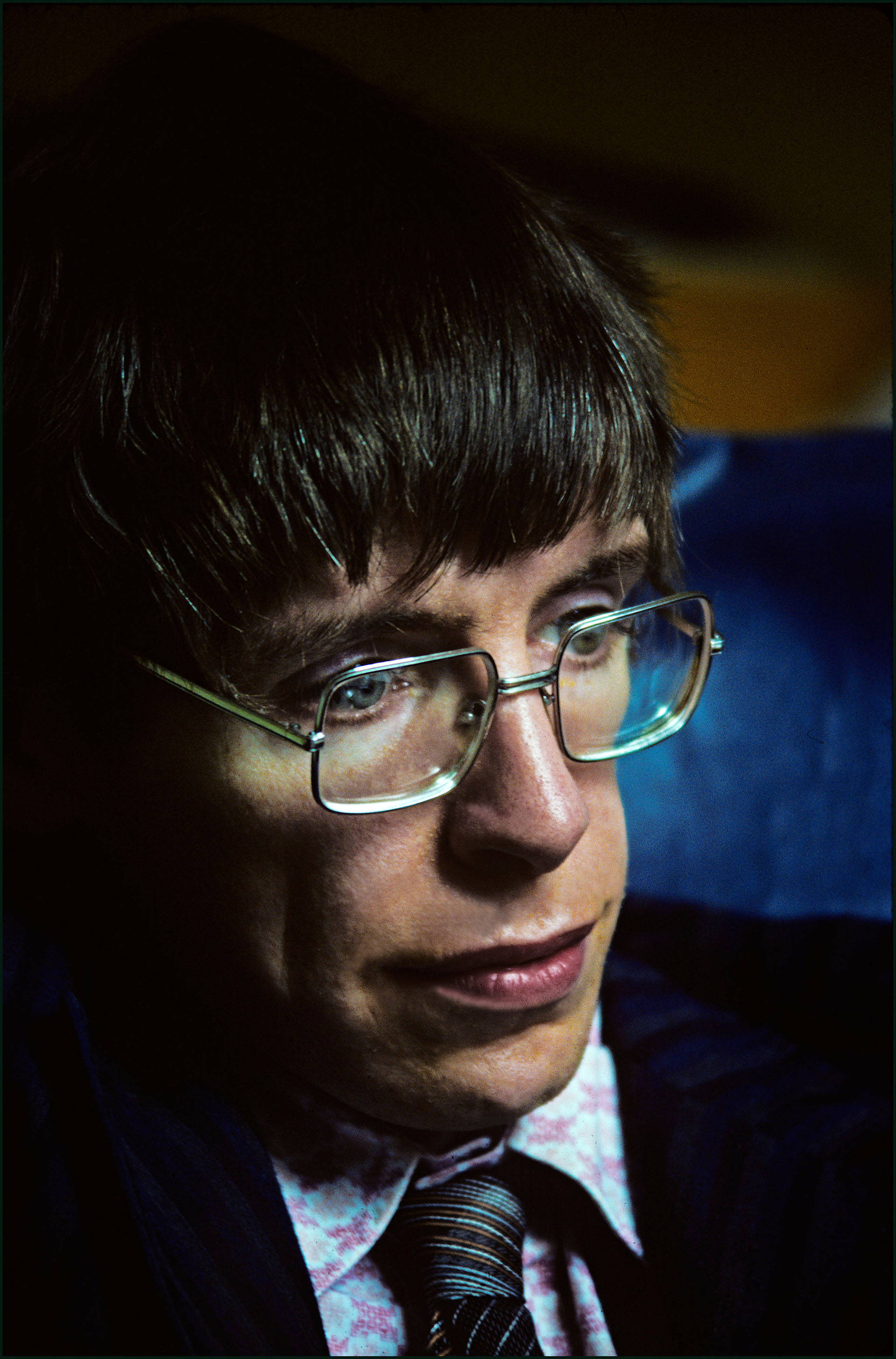
I first met Stephen Hawking in 1977 when I went to Cambridge to join my wife, Mary, who was pursuing graduate studies there. I had already been accepted into the General Relativity group but was having difficulty completing my PhD thesis for Melbourne University while Mary was on the other side of the world. Hawking arranged for me to share an office with his then-postdoc, Don Page, and welcomed me as part of the group. Thus, by the time I eventually finished my thesis, I was very familiar with the scientific interests in Cambridge and had already met a number of distinguished visitors — visitors who were beating a steady path to the Cambridge group, just to see Stephen.
As soon as my PhD was finished, I immediately began traveling with Stephen to meetings. He would often take two colleagues and perhaps another assistant to help with the physical attention he needed, to interpret for those he met, and to translate his personally delivered talks for the general audience. At that time, Stephen was sought out extensively, and he would enjoy the many interactions with other famous colleagues, be they from Russia, the United States, or a country in Europe.
What few people may realize from the mechanical voice which has become his trademark, is that Stephen had a lively sense of humor, which was infectious. Several of his graduate students once put a mathematician on a train wearing a ruler tied to his jacket button hole, until he could solve the topological problem that would elucidate its easy removal. Stephen was also quite adventurous, interested in the vista from atop ruins of the ancient walls in Rome, for example, or the view beyond a distant verdant hill in a damp Welsh atmosphere. When traveling, Stephen was always keen to find gifts and presents to take home to his family and would venture into European street markets or American malls in their pursuit.
In total, I was in the General Relativity group with Stephen Hawking from 1977 to 1983, and after that I assisted him at various meetings until at least 1985 (when he tragically lost his voice due to a tracheotomy). My work in Cambridge, and for nearly a decade after, focused on Hawking’s theory about the properties of black holes and, as his research associate, I worked closely with one of his graduate students. I also traveled with him extensively to meetings, both within the UK and internationally, since I was well able to understand his voice — which, to many, seemed indecipherable — and to present his talks with him.
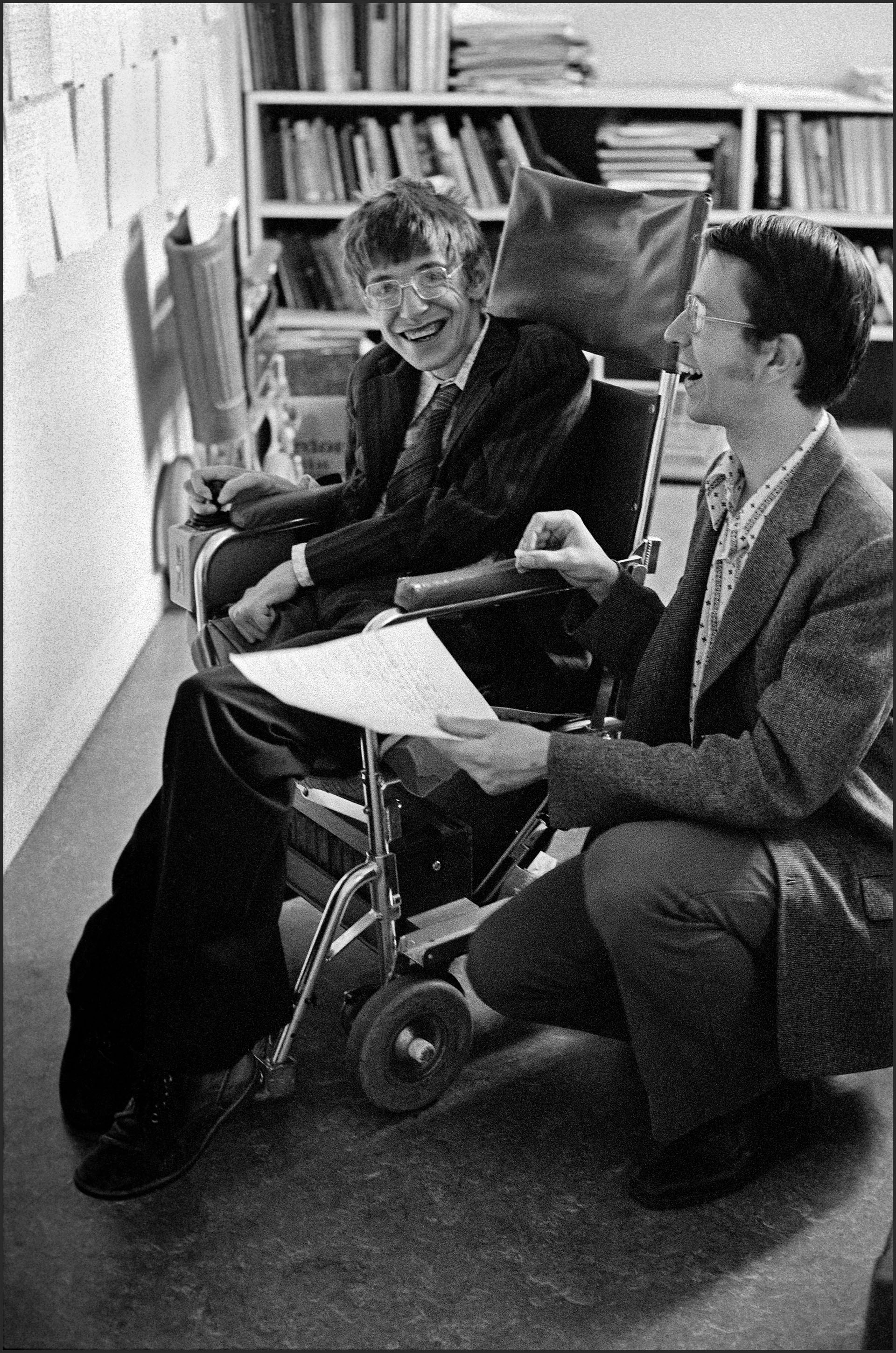
I learned a great deal from Stephen, especially about the nature of science. I also learned from him about how to deal with other scientists, and with bureaucrats, from the university up. But one of the most valuable things he did for me was give me freedom. While the necessity of this freedom seems intuitively obvious to great scientists, it is not always understood by university administrators. In my case, while ostensibly working on problems of quantum fields in curved spacetimes, it was the freedom to pursue an interest in the stability of rotating Kerr black holes. The nature of science is that this problem took a long time to attract the attention and interest it currently has and helps explain why I moved on to other problems for several decades. Consequently, I finally had the privilege, during a small meeting in Texas, of presenting to Stephen new results in the mathematics of self-gravity we had been using on quantum fields in curved spacetimes several decades earlier.
After I came to the University of Florida in 1989, my scientific path began to slowly diverge from Stephen’s for a time. However, during an exchange year in Utrecht in 1992–3, I had the good fortune to pursue a problem on the formation and evaporation of black holes with Gerard ’t Hooft, who also has a strong interest in what has become known as the information paradox, prompted by Stephen’s early proclamations about mixed quantum states and information loss. I have since had one graduate student complete a thesis on the dynamics of black hole evaporation, aka “Hawking Radiation.” Then, beginning in 2010, Stephen invited me to a number of meetings he was hosting, with former close colleagues, at “Cook’s Branch” in Texas. In 2015, he also invited me to a meeting on Hawking Radiation held by Nordita in Stockholm. Since that time, I have had one student or another back working on problems in which Hawking also shared an interest. In particular, the end state of the Hawking evaporation process — and whether or not a black hole will vanish — remains an open problem that still perplexes many, and for me, is unfinished business.
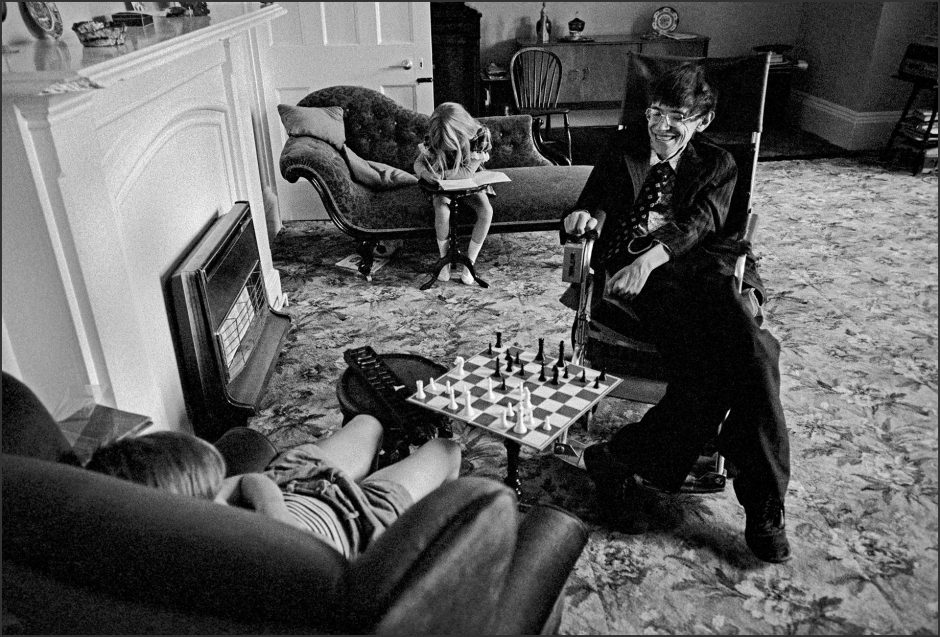
The death of Stephen Hawking gives us an opportunity to reflect on his contributions to the world, some of which are not directly scientific. What are seen as his persistence and bravery in the face of adversity, qualities that are necessary in any great achiever, were demonstrated to an exemplary level in Stephen, and have been a source of lasting inspiration, probably to millions in all walks of life. His strong stance on the public support of science sometimes led him to fall foul of the political powers. Others have mentioned his direct political activism, particularly for those with disabilities. I think that overall, Stephen will pass into history as a sort of legend: his remarkable computing powers appeal even to those who do not particularly understand any of the problems he was tackling. Stephen was a clear example of mind acting over matter, and that has appealed to many just as living the high life had appealed to Stephen.
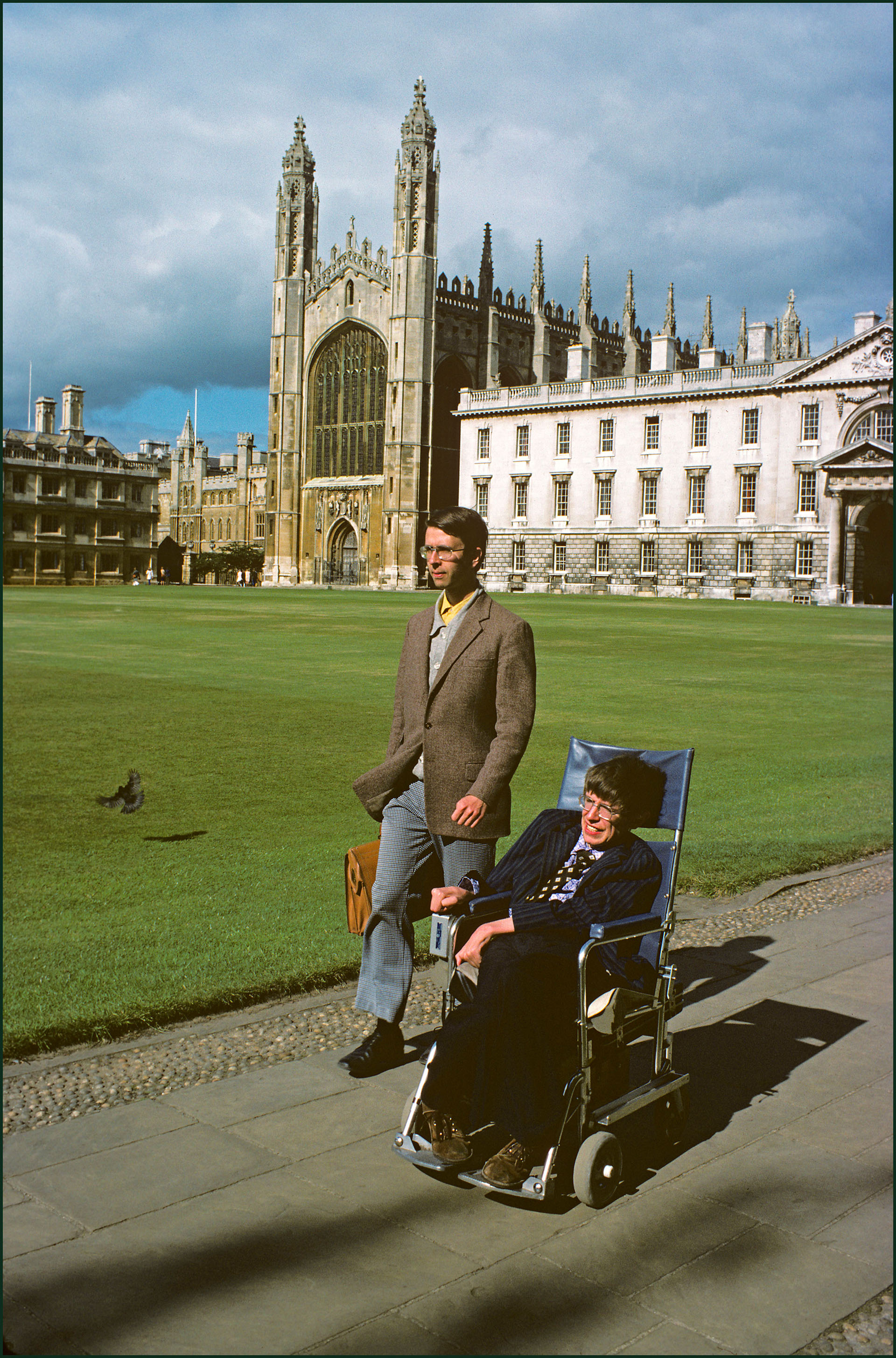
My experience with Hawking was not just scientific. Mary and I knew his family well, to the extent that we would vacation with them, and my wife would help his wife, Jane, with their daughter, and later their younger son, before our first child was born in Cambridge. In fact, Jane and their daughter stayed with Mary and our daughter while I was in Rome at an international meeting with Stephen in June, 1985, shortly before his fateful visit to Switzerland during which he fell gravely ill with pneumonia and required emergency medical intervention that resulted in his tracheotomy. For many of us who knew him, the greatest loss at that time was the spontaneity in his lively sense of humor. The delay while he programmed his mechanical voice to respond was not one we would otherwise associate with Stephen, and his responses sometimes lost something — such as a humorous inflection — in the translation. In all, while his scientific contributions will be remembered by many, his unfailing sense of humor will remain with those of us who knew him until our own dying days.
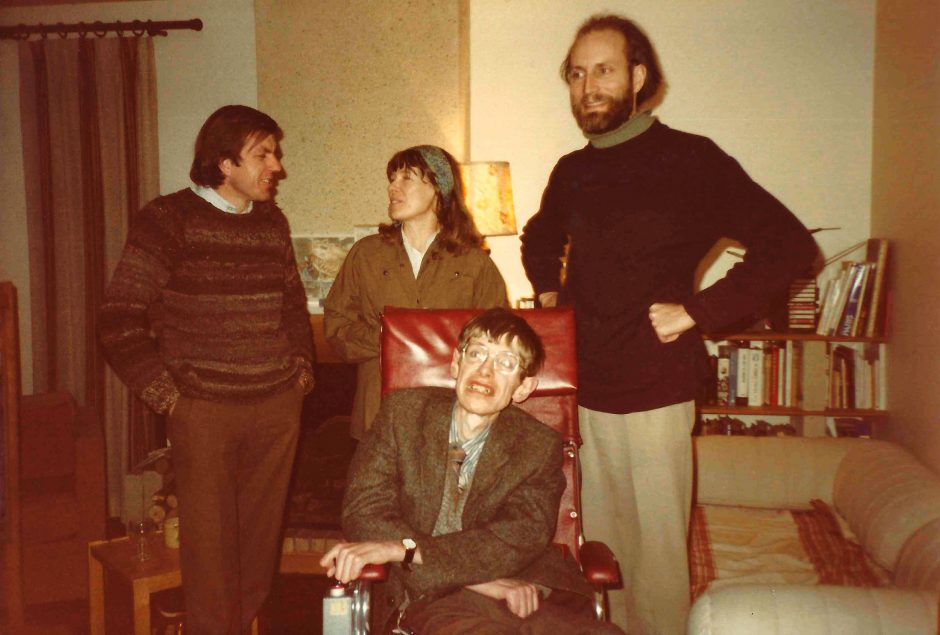
I can’t help but finish with the observation that my current involvement in the LIGO Scientific Collaboration focuses on the detection of the stochastic gravitational wave background from the Big Bang, a signal that Stephen’s work on the quantum physics of the early universe has helped to motivate me to detect. It is not yet within range of being detected, in contrast to the several detections of binary black hole mergers that have now occurred. Precise measurement of the final black hole’s properties through its quasi normal dissipation is something Stephen was eager to see — as a confirmation of General Relativity. His observation that black holes should radiate away is well beyond detection at present and drives future experiments — and dreams.
Bernard Whiting earned his BSc and PhD from Melbourne University, with postdocs in Cambridge, England; Meudon, France; Chapel Hill, N.C.; and Gainesville, Fla. He has been a faculty member at UF since 1990. His scientific interests include analysis of quantum fields in curved spacetimes, classical Kerr black hole stability, the gravitational self-force problem, and the detection of a stochastic background of gravitational waves by the LIGO Scientific Collaboration.
